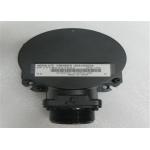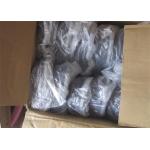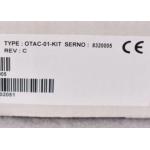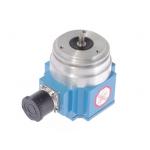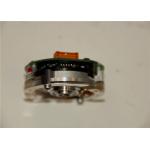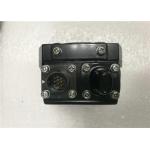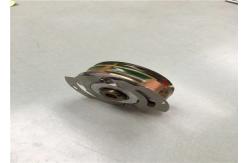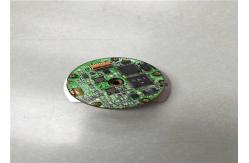Servo Motor Encoder askawa Absolute Encoder UTSAH-B17BB for
SGMGH-30A2A
QUICK DETAILS
- Brand :Yaskawa
- Model :UTSAH-B17BB
- Place of Origin :Japan
DESCRIPTION
- Servo Motor Encoder
- Yaskawa Electric
Incremental Encoder
| Model Number | UTOPH-81AVF |
| Category | Internal encoders |
| Manufacturer | Yaskawa |
| Series | UT series Encoders for AC Servo and Spindle motors |
| Type | Incremental encoder (optical encoder) |
| Name of series | BB |
| Construction | Coupled with plate spring for motor (complete) |
| Resolution | 8192 pulses/rev |
FEATURES
- Small body with 50 mm diameter and 35 mm depth
- Splash proof (IP65 rating)
- 8 mm solid shaft
- Absolute resolution available from 32 pulses per revolution to 1024
pulses per revolution
- Open collector output
- Up to 20 kHz response frequency
Why use an absolute encoder?
An absolute encoder has each position of the revolution uniquely
numbered. This means that instead of an output of pulses, you get
an output that is a specific value in a binary format. This is very
useful when exact positioning is a must. If the power should be
lost, the actual value of the position will be known when power is
restored, since each location in an absolute encoder’s revolution
is a unique binary value. The exact position will be known even if
the controller loses power and the process is moved.
How far away can I place my encoder from my system?
There is no set answer to this question. Many factors play a role
in determining the maximum length of cable that can be used to
connect the units together. The largest problem with running long
lengths of cable is that the cable becomes more susceptible to
noise. This is due to the capacitance of the cable, the cable
acting as an antenna, and the loss of power through the cable. The
maximum distance of cable can be achieved by following some basic
wiring principles. Do not run the cable near objects that create a
lot of electrical noise. This includes AC motors, arc welders, AC
power lines, and transformers. Use twisted pair cabling when using
the signal and its compliment, and shielded cabling when running
any type of signal. Use the highest voltage available for the
output voltage. For example, if the encoder will output 5 to 24
volts, then use 24 volts. Use an open collector or differential
line driver output with a differential receiver so that the maximum
amount of current can be sink/sourced. If you are using the encoder
as an input to more than one controller, use a signal amplifier.
This is also a good way to help increase the distance a signal can
travel. Typical maximum distances for a differential line driver
are around 100ft., or more when using a differential input, and for
an open collector the distance is around 35 ft.
